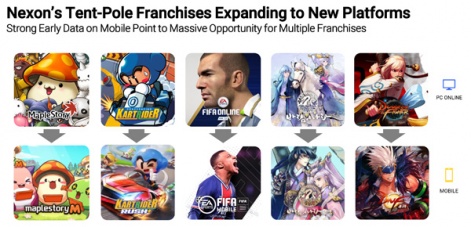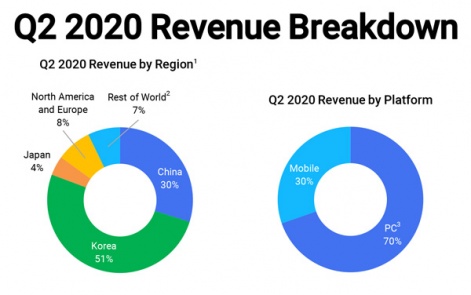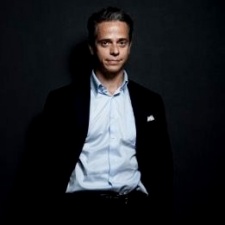Founded in South Korea, now headquartered in Japan, and with China as its #2 market, free-to-play gaming outfit Nexon covers a lot of bases in the dominant Asian market.
But maybe this geographical focus is the reason the company doesn't attract the same level of visibility as its western peers.
According to CEO Owen Mahoney, who joined from EA back in 2009, that could be about to change.
In particular, he has high hopes for the as-yet unnamed debut release from Embark, the startup founded by veterans of the Battlefield series and which Nexon acquired in 2019.
Incidentally, from his EA days, Mahoney was a key part of the deal that saw it acquiring a small Swedish studio called Digital Illusions CE. The Battlefield developer went on to become a key element driving EA's growth over the past fifteen years.
Who says lightning can't strike twice?
Still going global
"We have big ambitions for the west," Mahoney comments about a market that currently accounts for only around 10 percent of Nexon’s revenues.
"Embark really understands that triple-A market."
He doesn't, however, agree with the premise that up-to-this-point Nexon has been ignoring North America and Europe.
It acquired two US studios - DomiNations developer Big Huge Games in 2016 and Choices developer Pixelberry in 2017. It's also seeing the increased adoption of some of its core IP outside of Asia.
"MapleStory's sales were up 151 percent year-on-year in Korea, but also up 173% in the US and Europe last quarter," he highlights.
Indeed, Mahoney argues against the emerging thesis that in the face of increasing geopolitical tension, global trade - and even cultural acceptance - is going to become more fragmented and constrained by local restrictions.

"Of course, there are major cultural differences, but I think some things resonate everywhere," he says.
"Nintendo IP is the classic example, but US companies like Blizzard have also performed well globally, as have games such as League of Legends."
He also says it would be foolish to ignore the dynamic nature of culture.
"Japan is often considered a special market but it flipped on a dime, moving from watching movies on DVD to Netflix," he comments, adding, "more generally, I think 2020 has demonstrated we're all pretty horrible when it comes to forecasting the future."
Long players
Instead, the key to understanding Nexon better is to look to its past.
PC MMORPG The Kingdom of the Wind, the first game it launched way back in 1996, remains live.
Similarly, the game series it's best known for in the west - MapleStory - has been running for 17 years, generating over $3 billion in the process.
We do one thing really well … deeply immersive online gamesOwen Mahoney
And Nexon's most lucrative title Dungeon&Fighter (aka Dungeon Fighter) - with over $15 billion of lifetime revenue; now mainly from China - has just celebrated its 15th anniversary.
No company has more experience than Nexon about operating games-as-a-service.
"Yes, we do one thing really well," Mahoney states.
"Over the years, we've tried lots of different games, lots of different genres. But what's been successful is deeply immersive online games."
Even in that context, it's notable that Nexon wasn't as quick into mobile as competitors such as NCSoft, which has experienced great success with mobile versions of its Lineage PC MMORPGs.
Currently around 30 percent of Nexon's revenue comes from mobile, although the proportion is growing as its mobile games business is growing faster than its long-dominant PC activity.

Mahoney argues that until iPhone X-class hardware became available at scale in 2018, mobile devices just weren't capable enough of handling the type of experiences Nexon required.
Certainly, if time has been lost in this regard, the company is now making up for it. All its key franchises, from MapleStory to the Korea-only FIFA Online, KartRider, and The Kingdom of the Wind, are now live on mobile.
As for the mobile version of Dungeon&Fighter, it's had over 60 million pre-registrations and will be released soon, following a slight delay to accommodate China's latest 'anti-addiction' laws for young players.
It's a significant point, especially as Mahoney says - the vagaries of forecasting aside - he expects no impact from the increasingly angry, protectionist exchanges between Chinese and western politicians.
Of course, Korean game companies already have some experience of what happens when the Chinese government decides it wants to demonstrate who's in charge.
No doubt this confidence is partly due to Nexon's tight relationship with Chinese giant Tencent, which has the exclusive rights to Dungeon&Fighter in China, and which has its own strong relationships within the Chinese corridors of power.
Anyhow, even accounting for geographic power plays, Mahoney says he thinks the biggest shift for the gaming sector remains the incredibly expansive opportunity provided by mobile games.
"There are around 300 million PCs capable of playing our games compared to 3 billion mobile devices," he explains.
"That's a ten fold increase in our total addressable market. And that's the secular shift now driving the entire entertainment sector."

















